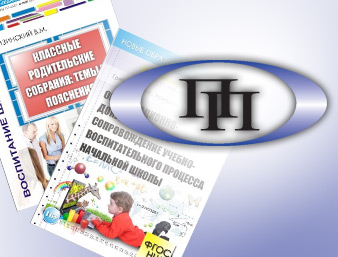
Школьная идентичность ребенка: поворот к ответственной воспитательной политике
Как бы не критиковали новый ФГОС общего образования, в нем, по моему мнению, есть две большие идеи, которые по размышлении захватывают, не оставляя равнодушным – идея метапредметности и идея формирования российской (гражданской) идентичности. Если даже допустить, как считают многие критики, что за идеей формирования российской идентичности стоит всего лишь желание новой элиты заставить всех остальных принять ее (элиты) версию России, я не могу отказаться от самой идеи. Для меня это равносильно тому, чтобы перестать верить в Родину. Любить Родину подчас очень трудно, но не верить в нее – невозможно.
Русское слово, которое весьма точно передает смысл английского identity, восходящего к позднелатинскому identicus – причастность. Быть при-частным – значит быть частью чего-то большего, чем ты сам: семьи, друзей, школы, Родины, Вселенной, Бога. Вне идентичности, причастности (разумеется, свободной, а не навязанной) человека захлестывает его «самость», он погружается в самомнение и самодовольство. Идентичность является результатом понимания человеком себя «как такового», устанавливаемого через выделение им для себя «значимых других».
Детско-взрослые общности и образовательные производства
Мы живем в обществе потребления. Целью человеческой жизни в этом обществе объявлено неограниченное расширение производства и потребления, так называемое материальное благополучие. Это общество глобально, наднационально. «Где хорошо – там и родина», говорят его сторонники. В обществе потребления не думают о смысле жизни – только о качестве жизни. Не «зачем и ради чего жить?», а только «как жить?».
Потребительская идеология выбрала молодежь как самую податливую социальную прослойку и требует ее полномасштабной консьюмеризации (превращения молодых людей в адептов потребительской цивилизации и носителей утилитарно-гедонистических мировоззренческих установок). Юному человеку не дают возможности даже на мгновение выпасть из системы потребления, стирают все его идентичности, кроме идентичности приобретателя, сковывают его свободу и делают приложением к вещам (компьютерам, мобильным телефонам, музыкальным хитам, бестселлерам, блокбастерам и т.п.), превращают в послушного «вещеглота» (термин философа А. Секацкого).
Распространение потребительской идеологии на волне массовой культуры приводит к деформации практически всех институтов и механизмов социализации, в том числе и образования. Консьюмеризация образования (превращение его в один из институтов и механизмов общества потребления) вызывает две группы последствий.
The child’s school identity: a shift towars responsible social education policy
Although the new Russian National General Education Standards are being heavily criticized, they contain at least two major ideas, which will leave nobody indifferent. That is a meta-subject approach to teaching and the formation of Russian (civic) identity. Even if we assume, as many critics suggest, that the idea of building Russian identity is explained by the mere desire of the new elite to make everyone accept their (the elite’s) version of Russia, I am not prepared to give up the idea itself. To me it is the same as to lose faith in my homeland. Sometimes, it is very hard to love it, but it is impossible not to have faith in it.
The Russian word identichnost precisely conveys the English term identity which dates back to the late Latin identicus, or belonging. To belong means to be part of something bigger: family, friends, school, Motherland, Universe, and God. Without identity or belonging (of course, voluntary rather than imposed), an individual is overflowed with his/her “own self”, sinking in the depths of his/her self-importance and complacency. Identity grows as a result of the individual awareness of oneself while identifying essential others.
Child-adult communities and educational production
We live in a consumerist society. Infinitely increasing production, consumption, and the so-called material wellbeing have been declared the purpose of a human life within this society model. Such society is global, supranational. Its supporters state, “Homeland is where you can live a good life.” Inhabitants of the consumerist society are more preoccupied with the quality of life rather than with its meaning. The issues they see are not “why and what I live for” but only “how I live.”
The consumerist ideology has chosen youth as the most pliable social group and demanded its full-scale consumerization (turning young people into followers of a consumerist civilization and into proponents of the utilitarian-hedonistic outlook). A young person is not, even for a second, given an opportunity to fall out of the consumerist system; all his/her identities, except for the customer identity, are erased, his/her individual freedom is paralyzed, and s/he is turned into an attachment to goods (computers, cell phones, music hits, bestsellers, blockbusters, etc.) becoming an obedient “things-addict” (the term was coined by Sekatsky, a modern Russian philosopher).
The expansion of the consumerist ideology fueled by mass culture leads to a deformation of almost all tools and mechanisms of socialization, including education system. Consumerization of education (i.e., its transformation into another institute and mechanism of the consumerist society) causes two types of consequences.




